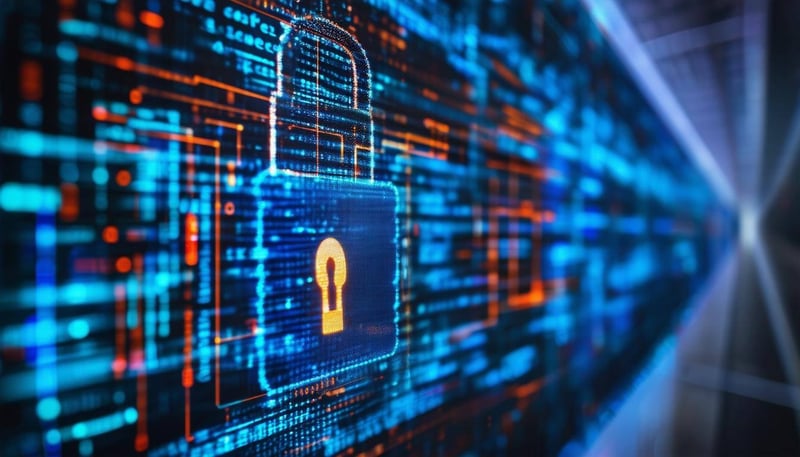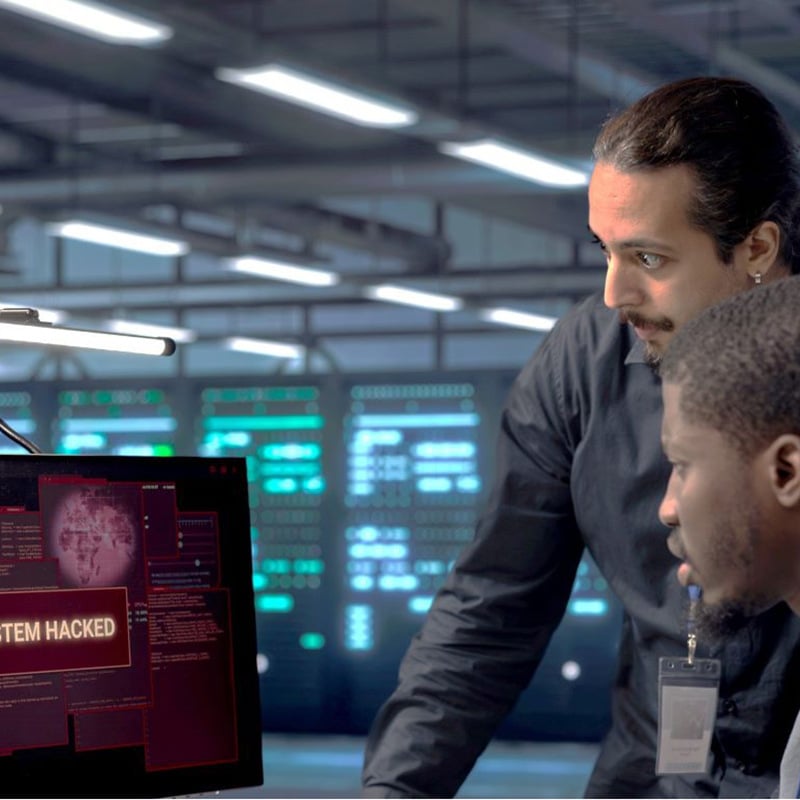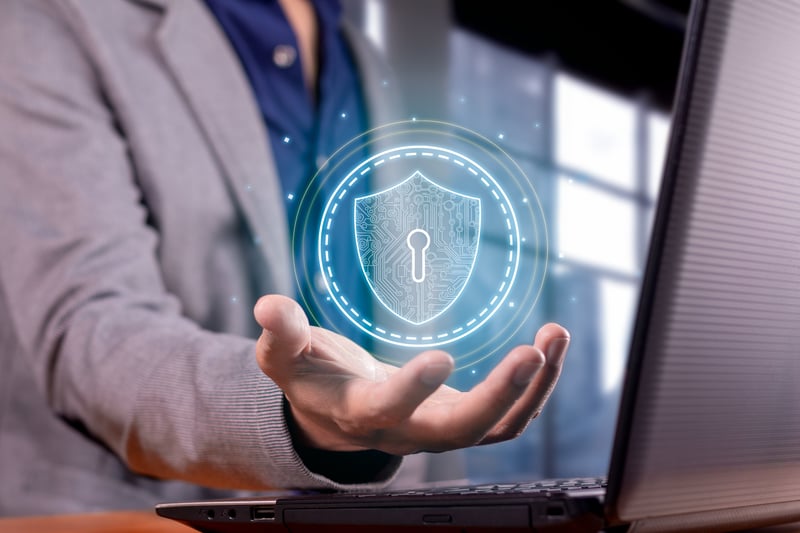
Cybersecurity

Cybersecurity: a fundamental asset
Cybersecurity has become an increasing priority both worldwide and in Italy, and for public or private businesses, as well as institutions. In a digitalized world, where ICT is more and more critical to ensuring business performance, cyber threats are constantly growing. This is due to both human errors and malicious actions. The annual Clusit report highlights a significant increase in cyber attacks over the years, particularly in Healthcare, Finance, Services, and Critical Infrastructure sectors.

IT security: which is the right strategy
How to defend against cyberattacks
It would better specify that cybersecurity concerns both IT (Information Technology) systems, OT (Operational Technology) and IoT (Internet of Things) systems: therefore, defense against cyberattacks involves not only sensitive data but also critical infrastructure and connected devices.
While IT systems focus on information security, OT systems (which control production or service distribution facilities such as electricity, water, etc.), primarily focus on continuity and service assurance. OT systems and IoT devices tend to be more vulnerable because they are perceived as less riskful, and thus with a broader attack surface. Therefore, an integrated cybersecurity strategy is necessary to prevent threats and ensure the resilience of the entire digital ecosystem.

How to guarantee cybersecurity
For business, enhance cybersecurity means to implement strategies and solutions for each specific environment. Every aspect of the organization could be a target, so that it would be necessary to implement ad-hoc defense techniques.
Among these:
- Protection of sensitive data. Faced with an increase in attacks aimed at stealing or damaging personal or corporate data, companies must implement specific strategies or security resources, dedicated to preventing data breaches.
- Operation continuity. Interruptions caused by cyber attacks can have dreadful consequences on business operations. Companies must ensure the resilience of their systems, capable of a quick recovery when incidents occur.
- Regulatory compliance. Both European and national directives, such as GDPR, the Digital Operational Resilience Act (DORA), and the NIS2 Directive, require companies to adopt stringent measures for managing cybersecurity. DORA, for example, mandates that financial institutions ensure digital operational resilience, while NIS2 extends security obligations to a broader range of sectors.
- Staff training. Phishing and social engineering often exploit the employees lack of awareness. Carelessness or misuse of sensitive data can have highly negative impacts. The employee becomes an “unwitting attacker”, causing even serious problems. It is therefore essential to train staff on safety practices and incident response protocols.

Cybersecurity: benefits for companies
Cybersecurity requires articulated strategies and integrated solutions, capable of responding to each need with a systematic approach. Regulation compliance and a constant upgrade of systems from a training point of view, guarantee protection against cyber attacks plus a series of clear advantages:
- Risk reduction. A robust security infrastructure reduces the risk of cyber attacks and a potential loss, both economical and reputational.
- Compliance. Being aligned with regulations such as DORA and NIS2, not only avoids fines, but also demonstrates a commitment to high security standards, increasing the trust of customers and partners.
- Operational resilience. Improving IT system resilience lets companies guarantee continuity even in case of cyber attacks, minimizing disruptions and economic loss.
- Competitiveness. Companies investing in cybersecurity are perceived as more reliable and secure, that means competitive advantage against competitors.
- Brand Reputation. Proactive management of IT security safeguards commpany’s reputation, avoiding the damages resulting from the public disclosure of the violations suffered.
Beta 80's cybersecurity offering
Beta 80, together with GO Infoteam partner, aims at providing a wide offering in the cybersecurity space, giving companies the necessary support to ensure a better resilience and the chance of developing their business.
Beta 80’s offering is based on three pillars:
- Consultancy. Risk identification and analysis, coming from external inputs or company needs (security threats, regulations compliance, resilience and operational continuity), aimed at developing customized strategies for security management. The activity complies to well acknowledged security frameworks like NIST, COBIT 2019, and ISO 27001 standard, to ensure customers a service compliant to standards and rules, according to measurable parameters.
- Technologies. Implementation of advanced tools for protecting and monitoring the security of IT infrastructures. The expertise of Beta 80 covers a broadrange, thanks to the experience gained on solutions and products: Inventory and Asset Management, Threat Intelligence, Data Privacy and Protection, Biometry and Criptography, OT Security, Security Awareness, Architecture and Cloud Security, Vulnerability Management, Threat Detection, Analysis and Response, Observability, SIEM – Security Information and Event Management, Automation, Identity and Access Management, Network Security, Backup & Restore.
- Services. Continuous support provided by specialized and highly qualified teams, to ensure system updates according to the most advanced technology standards. Thanks to our specialized teams, we provide our customers with services to support Security Operation, such as monitoring, defense and attack simulation activities:
- Security Operation Center (SOC), dedicated to monitoring, analysisisi and resolution of cybersecurity problems;
- Blu Team, dedicated to defense strategies;
- Red Team, dedicated to IT vulnerability «attack», aimed to help companies improve their defense technologies.
Furthermore, part of the services offered by Beta 80 is the training of employees, through standard e-learning platforms, or through personalized training courses (virtual and in the classroom).





